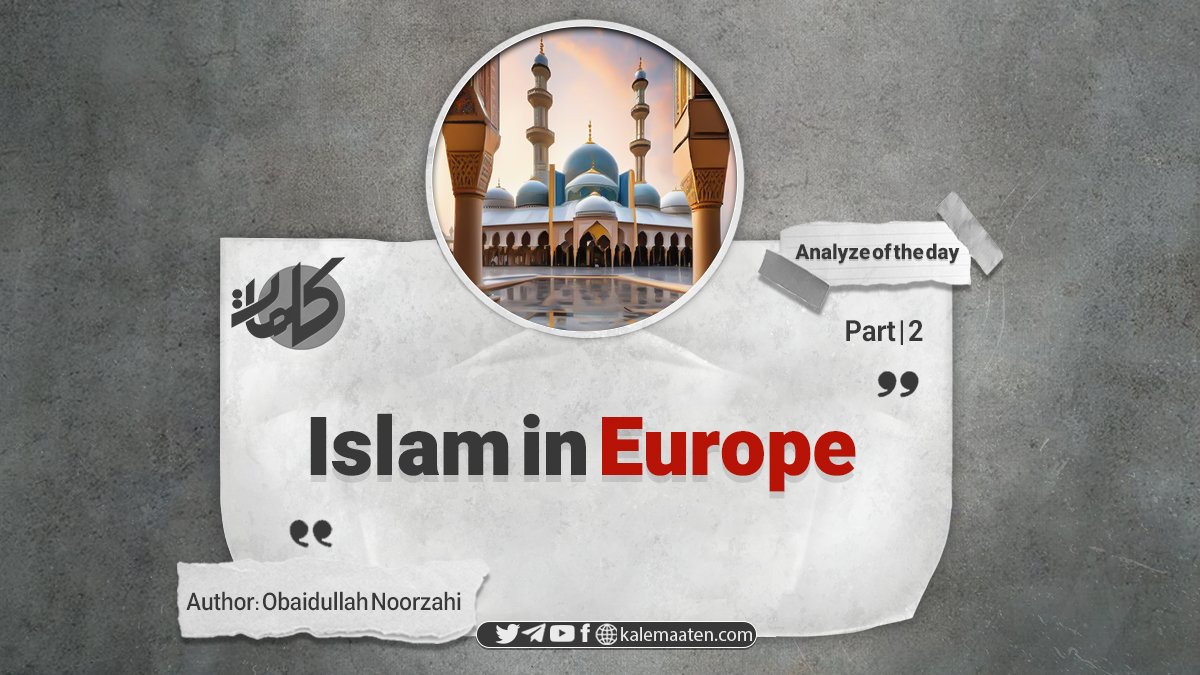
Author: Obaidullah Noorzahi
Islam in Europe (Part Two)
Orientalists’ Views on the Treatment of Muslims by Christians
Dr. Gustave Le Bon writes in his book Islamic and Arab Civilization: “Muslims dealt with tribes and nations that had been under the pressure of oppressive rulers for many years. These oppressed subjects accepted Muslim rule with great enthusiasm, as they enjoyed security and freedom under the shadow of Islam.”
Metz states in his book Islamic Civilization in the Fourth Century AH: “What distinguished Islamic lands from Christian Europe was the existence of non-Muslim religious minorities living freely. This was never observed in Christian Europe. Synagogues and temples of other religions in Islamic lands were so free that they seemed to be outside the realm of Muslim rule.”
Similarly, Dr. Donegan Green-Less states: “The great decency and tolerance of Islam, which recognizes all divine religions, is a great legacy for humanity and could be the foundation of a world religion.”
The disabled and poor Christians were also supported by the Muslim treasury. Christians could freely approach Islamic courts to make claims and defend their legitimate rights. These worthy behaviors are a clear example of the moral teachings of Islam, which have always emphasized justice and tolerance toward followers of other religions.
When the Muslim armies under the command of Abu Ubaydah al-Jarrah reached Palestine and Jordan, a group of Christians, fatigued by the oppression and tyranny of the Romans, wrote a letter to the Muslims with the following content: “O Muslims, you are more beloved to us than the Romans; although they are our co-religionists, you are more loyal, more merciful, more just, and more benevolent to us. They have gained control over us and have plundered our homes.”
“Sir Thomas and Arnold” write about the conquests of the Muslims in their book Al-Dawat al-Islam: “The lands that had been occupied by the agents of the Roman Empire were opened to the army of Islam one after another with the utmost satisfaction and contentment. The reason for this phenomenon was that Muslims, unlike the Romans, behaved with forgiveness, kindness, and generosity; something that various ethnic groups had been deprived of for centuries due to religious prejudices.”
George Zidan also notes in the history of Islamic civilization: “After conquering the cities, Muslims left the residents alone and did not interfere with their religion, transactions, civil and judicial laws. The Islamic armies only undertook the protection of these lands, and in exchange for maintaining security, they imposed a small jizya.”
In areas such as Homs (in the Levant), the people welcomed the Muslims and closed the doors of their houses to the armies of Heraclius. They declared that the Muslim government was more beloved to them than the Romans.
In the following centuries, the Muslims’ behavior toward Christians remained peaceful. Even in many governmental, administrative, and commercial matters, Christians played an effective role. Adam Metz, a European orientalist, states: “In the fourth century AH, the number of Christian employees and directors in the Islamic state was so large that it left one astonished.”
Al-Maqrizi, a famous Islamic historian, writes: “During the caliphate of al-Hafiz Luddinullah, a group of Christian tax officers were appointed to examine and regulate the taxes of Egyptian lands. They performed their duties with careful and professional supervision.”
Albert Mallet writes in his History of the Middle Ages: “The people of Rome, Palestine, Syria, and Egypt, who were fed up with the oppression and heavy taxes of the Romans, considered the Muslims, who behaved with justice and moderation, to be their saviors. For this reason, many of them accepted Islam and even sacrificed their lives for the advancement of the Islamic religion.”
Count Henry de Castries also notes the peaceful approach of the Muslims: “When the Islamic state was established in the East, it never showed hostility to Christianity and did not create any obstacles for the followers of Christ.”
Professor Hazard says in his book Atlas of the History of Islam: “The Muslims did not change the religion of the people in the lands they conquered and used peaceful methods in inviting them to Islam. The Christians of Egypt and Syria, who were enemies of the Eastern Romans, gradually and willingly converted to Islam.”
This peaceful approach was also maintained during the Muslim rule in Andalusia. Stanley Lynn Paul, a prominent orientalist, states: “Andalusia enjoyed a just and kind government during the Muslim rule; a government that it had not experienced at any other time in its history.”
Will Durant also writes: “The Muslim conquerors treated the people of Andalusia well and gave them religious and ideological freedom; a freedom that was unprecedented in the history of Spain.”
“We can understand the attraction of Islam to Christians from a document compiled in 1311; in this document, the number of Muslims in Granada is mentioned as two hundred thousand, all but five hundred of whom were Christians who had accepted Islam. Basically, Christians preferred Muslim judgment to Christian judgment. The religious freedom that Muslims had given to Christians was to such an extent that some fanatic Christians recklessly desecrated Muslim sanctities. On this basis, they formed a group led by Julchius, whose goal was to openly insult the Prophet, peace and blessings of Allah be upon him.”
At the time of the fall of Constantinople (modern Istanbul) to Sultan Mehmed the Conqueror in 1453, the Muslim treatment of Christians was still based on respect and support. Sultan Mehmed the Conqueror introduced himself as the protector of the churches and declared that no one had the right to harm Christians.
A Byzantine nobleman during the siege of Constantinople said: “The turban of the Prophet of Islam is far better than the holy hat of the Pope.”
Finally, the treatment of Christians by Muslims, especially during and after the conquests, was a clear example of religious tolerance and social justice, unparalleled among the societies of that time.
Continues…


